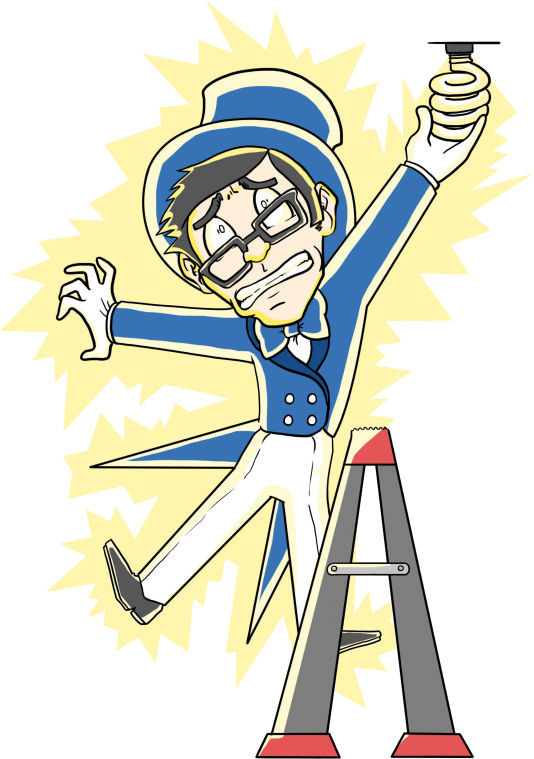Union Improvements will cause inconveniences to staff, students
April 3, 2013
The campus energy upgrades planned for Washburn will bring energy savings and efficiency as well as inconvenience to staff and students.
With the help of the energy savings company, Trane, facilities services hopes to make the transition as smooth and as convenient as possible.Though some are wondering how the scheduled construction will affect their lives, especially in the extreme hot and cold months.
Trane and Facilities Services have a website for students, faculty and staff to stay updated on when and where construction will occur on campus. One can check the status, the return date, expected finish date and even the level of inconvenience for any given job. The site is found simply by going to washburn.edu/construction and clicking the link to the Trane website. From there, clicking on the map of campus will bring up a list of buildings and a schedule. The website will be updated weekly to reflect any changes.
Last Friday, March 1, Washburn administrators such as president Jerry Farley and Rick Anderson, VP admin and treasurer, along with three Trane executives: Angie Gensler, marketing manager, Nathan Whitney, project manager and Keven Ward, public sector consultant, together held a town hall meeting. Many faculty, staff and a few students were present. Questions and concerns were addressed by faculty and staff, and Trane explained how they will be doing things in the coming months.
“We have a team on campus and they are working night and day to make sure that this project is being completed on time,” said Gensler. “They have daily field reports and they are constantly updating them working with subcontractors and the construction team and at the end of that week they will put together a summary. And we are going to post every summary on the website so you guys can go onto that summary and see what’s going on, where we are and see what the status is on each building, just to keep you all up to date so you can see exactly what is going on in your building.”
The Memorial Union will be receiving some of the biggest changes so they will be referring to them in phases. The Memorial Union is scheduled to begin Phase 1 for their heating, air conditioning and ventilation replacements May 13 through July 5 of 2013. The Union is considered a ‘high impact area’ because it is one of the busiest buildings on campus and will have some invasive work being done.
“‘High impact’ buildings are the ones that are going to be the most inconvenienced in terms of what impacts those buildings and so if you look on the schedule that is the Union and Morgan Hall,” said Anderson.
Some may wonder why the construction is being planned during the hot months and some may worry about the working conditions in the Union during the upgrades, since many events are scheduled in the Union during the spring and summer months.
“We don’t want to disrupt the service for a lot of the events that are scheduled for this summer,” said Anderson. “We are probably looking at bringing in a temporary chiller, while we redo the other chiller unit for that. We are looking to minimize the impact to those buildings that are high impact areas.”
Edward Wiss, assistant director for maintenance, assures there are plans in the works to accommodate the Union staying open during this time period.
“It’s one of our biggest disruptions for air conditioning,” said Wiss. “We are going to do it in two phases. The first phase will involve the big compressors out on the roof, and that will shut down when they are disabled. What we are looking at is renting a temporary compressor package to put on a trailer, but we haven’t confirmed that’s the way we are going to go.”
Trane rents out this type of equipment, but it’s not cheap and Washburn will probably search for alternative options before sticking to this one.
“Now the reason we are getting a little bit aggressive with [the Union] is that the air conditioner has problems,” said Wiss. “One of the three compressors is shot and won’t run, so instead of running on partial AC during the hot summer, we thought we might try and push this project up ahead.”
For more information on how this will affect campus, check out the website TraneMidAmerica.com/Washburn, which will have in-depth information on the project with daily and weekly reports.



